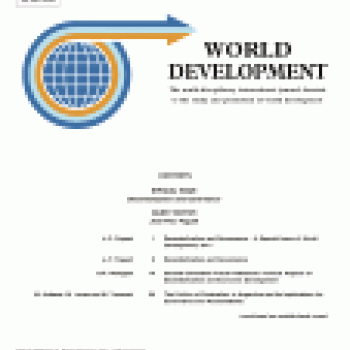
We use data on children at ages 8, 12 and 15 from Young Lives, a cohort study of 12,000 children across Ethiopia, India (Andhra Pradesh), Peru and Vietnam to document the presence of a gender gap across indicators of nutrition, education, aspirations, subjective well-being and psychosocial competencies. We find considerable heterogeneity across countries, ages and indicators in the existence and direction of gender gaps. Second, we find evidence of an 'institutionalized' gender bias against girls in education in India and, to an extent, Ethiopia. Poorer non-cognitive skills could be a channel for continuing gender bias through poorer labour market outcomes.
Keywords: Gender, Ethiopia, India, Peru, Vietnam, cohort study
The final published version of the article is available on the journal website.

We use data on children at ages 8, 12 and 15 from Young Lives, a cohort study of 12,000 children across Ethiopia, India (Andhra Pradesh), Peru and Vietnam to document the presence of a gender gap across indicators of nutrition, education, aspirations, subjective well-being and psychosocial competencies. We find considerable heterogeneity across countries, ages and indicators in the existence and direction of gender gaps. Second, we find evidence of an 'institutionalized' gender bias against girls in education in India and, to an extent, Ethiopia. Poorer non-cognitive skills could be a channel for continuing gender bias through poorer labour market outcomes.
Keywords: Gender, Ethiopia, India, Peru, Vietnam, cohort study
The final published version of the article is available on the journal website.

